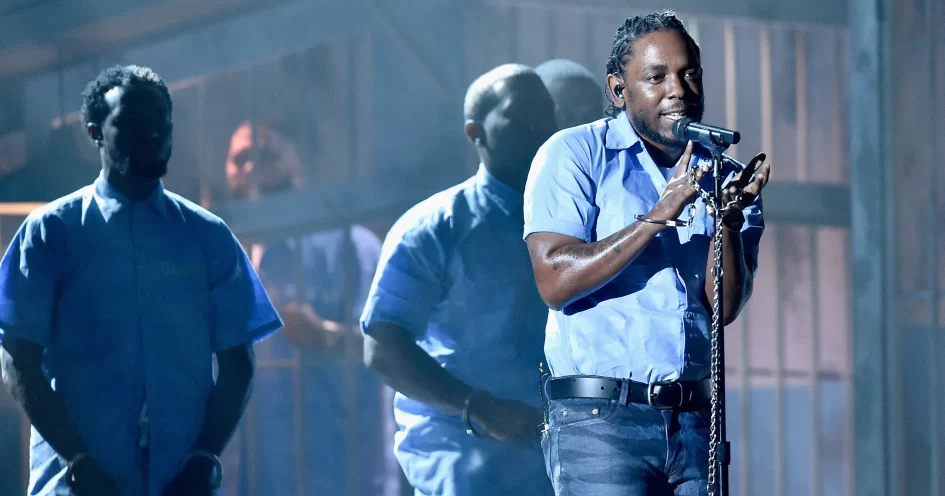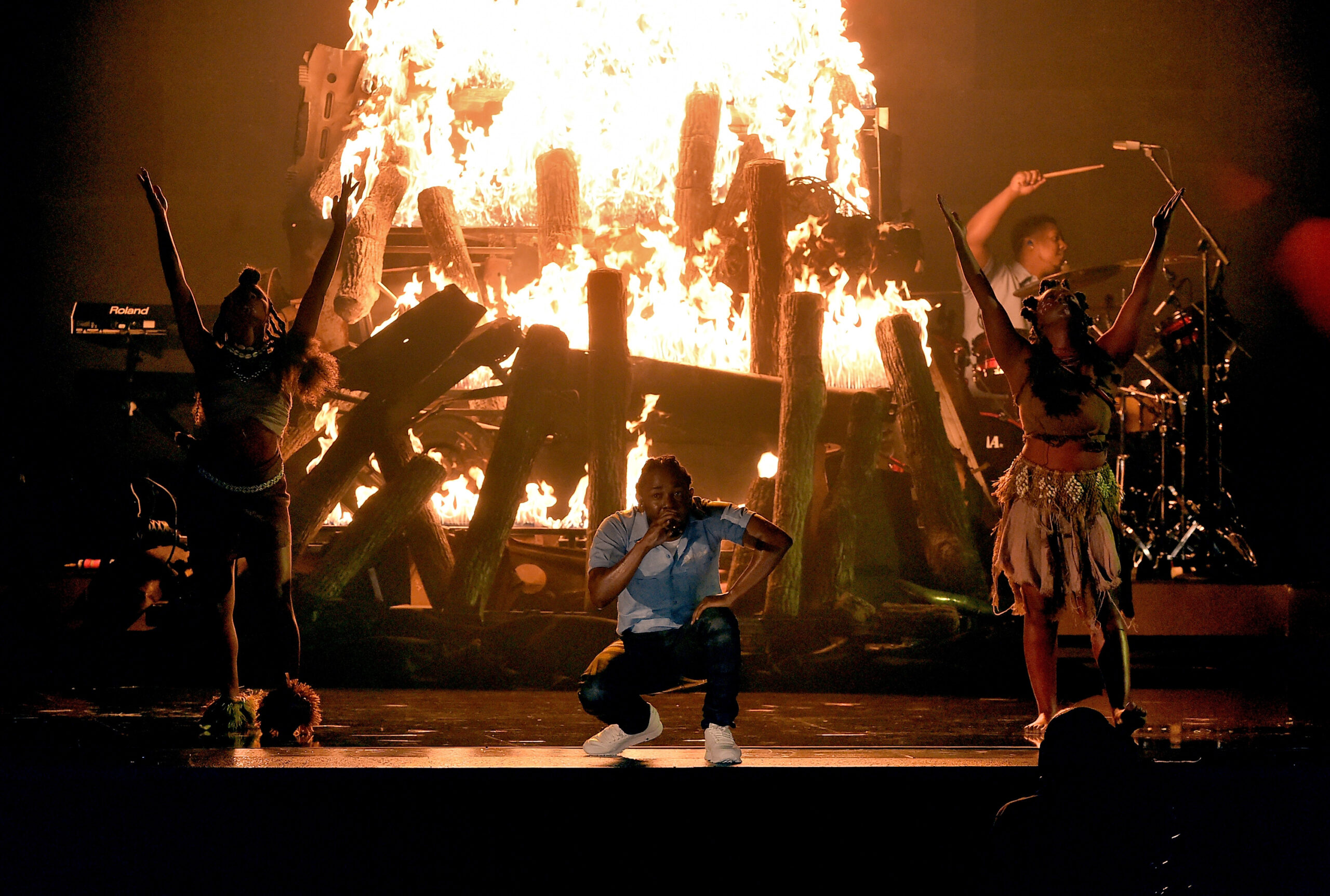The alternate versions of a song, whether it’s a cover, remix, live performance, or even an acapella, hold such a significant place in the world of music. The alternative interpretations serve as a unique glance into a song’s artistry, emotions, and overall cultural significance. They matter so much because of their ability to provide listeners with fresh perspectives allowing them to engage more deeply with the music, its themes, and its impact on society. In this, we will delve into the alternative versions of Kendrick Lamar’s polarizing song “The Blacker the Berry.”
Kendrick Lamar’s Live Performance of “The Blacker the Berry” at the 2016 Grammys

In this first rendition, we will be looking at Kendrick Lamar’s live performance of “The Blacker the Berry” at the 2016 Grammy Awards. Lamar’s vocal delivery was simply outstanding and added multiple layers of intensity and emotion to an already intense song. The energy and rawness he brought to the stage was a tour de force that directly influenced the song’s impact. The stage design was striking, featuring a backdrop of prison and jail cells and a bonfire. Lamar was dressed in a prison outfit and chains, surrounded by African Dancers and dancers in prison uniforms.
Lamar begins his performance walking out in chains towards the microphone, with lowkey lighting that only shows himself and the jail cells. He immediately starts rapping the song with dramatic pauses, amplifying the brass and percussion instruments with each break. When he reaches the hook, he stops rapping. The light dims, and his clothes, along with the dancers beside him, start to glow. They begin to dance with an African tribal feel, while the music continues to play in the background. The visual elements highlight the themes of Black culture as well as themes of incarceration and systemic oppression as mentioned in the song’s lyrics. The choice of visuals made a powerful statement
Lamar gave a phenomenal performance that night, not only singing “The Blacker the Berry” but also seamlessly transitioning to two other songs. One of them was his single, “Alright,” which offered a message of hope and resilience, while the other was an untitled Grammy Awards exclusive that expressed society’s frustration, alluding to the death of Trayvon Martin and the events that followed. Lamar’s transition into each song was deliberate, highlighting the triality of emotions experienced by Black individuals in the face of adversity. “The Blacker the Berry” delves into anger and self-reflection, “Alright” offers a sense of hope, and the untitled song expresses frustration.
“On February 26th I lost my life too
It’s like I’m here in a dark dream
Nightmare, hear screams recorded
Say that it sounds distorted but they know who it was
That was me yelling for help when he drowned in his blood
Why didn’t he defend himself? Why couldn’t he throw a punch?
And for our community do you know what this does?
Add to a trail of hatred”
Kendrick Lamar’s performance received both praise and criticism, leading to discussions on the role of music and its makers in addressing social and political issues. During the performance, “The Blacker the Berry” was highlighted, and the added visuals and additional songs contributed to the song’s social and political commentary. Kendrick Lamar’s performance not only entertained but also prompted people to reflect on issues of racial injustice and inequality. The use of visuals, medleys, and symbolic elements made the song more meaningful and impactful for the audience.
Accapella Version of “The Blacker the Berry”
There is no other official alternative version of “The Blacker the Berry”, but I stumbled upon an acapella rendition on YouTube that’s worth discussing. The vocal emphasis on certain words in this version makes it more intense than the original. It’s raw and powerful, allowing for a more intimate and intense feel to the already emotional lyrics and delivery. The absence of instruments amplifies the song’s message, making it even more poignant.
Without the musical accompaniment, listeners are more aware of the lyrics, which enhances the song’s meaning. The silence in the background makes you truly comprehend some of the song’s most powerful lines.
“And this is more than confession
I mean I might press the button just so you know my discretion
I’m guardin’ my feelings, I know that you feel it
You sabotage my community, makin’ a killin’
You made me a killer, emancipation of a real n****”
This rendition provides a more unique perspective on the song’s themes. This is because of the way Lamar uses certain vocal inflections, phrasing, and emphasis on specific words that can offer a new take on the song’s emotional depth and complexity.
Conclusion
Alternative versions of songs, particularly in the case of Kendrick Lamar’s “The Blacker the Berry,” matter immensely in music and society. They offer such a new perspective deepening the understanding for listeners and enriching the cultural significance of the song. Lamar’s 2016 Grammy Awards performance and acapella exemplify this significance. Through symbolism, emotional delivery, and striking visuals, these renditions have transformed a powerful song into a visceral and profound commentary on social and racial injustice. Alternative versions can serve as a platform for artists to enhance their message and challenge societal norms on a more grand stage.


October 15, 2023 at 4:25 pm
A truly wonderful discussion, Denzel. I hadn’t seen that performance in a long time and the a cappella version is quite compelling. Really looking forward to what you can do with this song in your podcast.
Bill